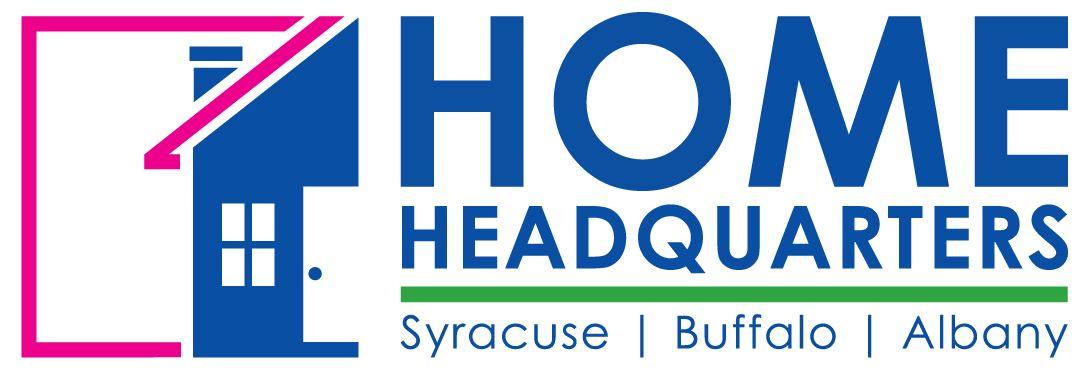Home HeadQuarters is committed to improving the health, safety and energy efficiency of homes in the city of Syracuse and throughout Central New York. We work to reach these goals through our extensive home and energy improvement lending programs, our redevelopment efforts with vacant properties and new infill construction and by sharing educational resources with prospective and existing homeowners, renters, community partners and others.
Lead
Because of the age of most homes in the Syracuse area, lead paint on windows, doors, wooden siding and trim is common. Even if you live in a home with lead paint, there are lots of things you can do keep your family safer. Click on the links below for a short video filled with tips for parents and care givers, available in English, ASL, Arabic, French, Somali, Spanish, and Vietnamese. Thank you to the Health Foundation for Western and Central New York for providing funding to make this project possible.
What is a Healthy Home
Does Syracuse have Healthy Homes?
With an aging housing and high poverty rate, many children and their families are forced to live in homes that are unhealthy, unsafe and not energy efficient.
Housing
City of Syracuse contains 64,938 housing units.
43.9% of the housing units were built before 1939 and 90.6% of the housing units were built before 1979.
Units built after 1980 comprise only 9.4% of the housing stock, which makes overall housing rehabilitation and lead risk reduction a daunting task.
Of the total occupied housing units, 38.5% are owner-occupied.
Income
The national median household income is $53,482.
The City of Syracuse median household income $31,566.
Lead
High level of lead in blood can harm a child’s growth, behavior, and ability to learn.
New York State requires doctors to test all children at age one year and again at age two years.
The average lead test result of young children is about 2mcg/dL. (Read more about how to protect your child from lead poisoning from the NYS Department of Health)
In the City of Syracuse there are 12,395 children less than six years old. Of those children 5,555 (48%) were tested in 2015, according to Onondaga County Health Department. The results indicate that 631 (11.3%) children had elevated blood lead levels.
Onondaga County ranks 2nd highest out of 62 counties in the state for the percent of children tested (59.7%) twice before their third birthday.
Onondaga County is in the top half of the state with a ranking of 21 out of 62 counties with children that have elevated blood levels.
Radon
Radon comes from the breakdown of uranium in soil, rock and water; creating a gas that occurs naturally, but can become a health hazard when it builds up indoors.
Radon screening levels of 4 pCi/L or more require some radon mitigation to reduce radon levels in a home.
Onondaga County and the City of Syracuse have high levels of radon. During radon screening levels reported in 1987 and February 2016, the NYS Department of Health screening has seen very little change in radon levels. The average radon screening in Onondaga County and the City of Syracuse reported results above 4 pCi/L; except for first floor testing in homes in the City of Syracuse.
Safety
A Center for Disease Control and Prevention study showed that 56% of fall injuries occur at home.
In America, the average hospitalization cost for a fall injury is $ 35,000.
In New York State, among adults 65 and older who are hospitalized due to a fall 60% end up in a nursing home or rehabilitation center, 11% suffer a traumatic brain injury, and 27% experience a hip fracture.
Onondaga County is home to more than 89,000 adults age 60 and older according to the 2010 U.S. Census.
According to the New York State Department of Health, Falls Hospitalization rates for residents aged 75-84 continues to gradually rise in Onondaga County.
“The Architecture Of Segregation,” By Paul A. Jargowsky
Nationally, the number of people living in high-poverty neighborhoods has almost doubled since 2000, rising from 7.2 million to 13.8 million in 2013.
Syracuse has ranked fifth with the highest rate of poverty out of the nation's 100 largest metropolitan areas.
In comparison to the 2000 Census and 2009-2013 Census Data, Syracuse has the highest level of concentration of poverty for African Americans and Hispanics.
Resources
Non-Profits and Philanthropies
ARISE
Catholic Charities
CenterState CEO
Central New York Community Foundation
Central New York Fair Housing
Central New York Regional Planning and Development Board
Exceptional Family Resources
Gifford Foundation
Greater Syracuse Land Bank
Health Foundation of Western and Central New York
Housing Visions
Interfaith Works
NYS Weatherization Directors Association
P.E.A.C.E., Inc.
Syracuse United Neighbors
Syracuse Center of Excellence
Syracuse Community Health Center
Syracuse Habitat for Humanity
Syracuse Housing Authority
Syracuse Community Connections
Syracuse University, Lerner Center for Public Health
National Resources
GHHI Home Page
Is My Family At Risk? - Online Assessment
GHHI Fact Sheets and Brochures
Syracuse Habitat for HumanityHUD Office of Lead Hazard Control and Healthy Homes (OLHCHH)
National Center for Healthy Housing
Local Health Related Resources
City of Syracuse and Onondaga County Free Smoke Alarms
Health Foundation of Western and Central NY Falls Program
Onondaga County Health Department Lead Poisoning Control Program
Onondaga County Health Department Free Radon Tests Available
Onondaga County Step Up to Stop Falls Coalition
Government
City of Syracuse
City of Syracuse Department of Neighborhood and Business Development
Onondaga County
Onondaga County Office for the Aging
Onondaga County Department of Health
Onondaga County Division of Community Development (Lead Program)
New York State Office of the Attorney General
New York State Home and Community Renewal




